Disinformation is a threat to democracy

We live in an age where information is all-pervasive and gets into all aspects of our lives. Access to and availability of information is essential at all levels of decision-making and for the effective conduct of any operation.
At the national level, policymakers need accurate information in the policymaking process. At a personal level, information has a transformative effect on people who receive it. It stimulates one's thought process and helps advance their areas of interest. Information eliminates any sense of doubt and uncertainty. At an organisational level, information is crucial to run an organisation efficiently and effectively. For the success of any organisation, there is no alternative to good information.
True information can be life-saving, while false information can be life-threatening. False information can spread like a virus and cause an "infodemic." At present, we are experiencing two forms of wrong information: misinformation and disinformation. The key differentiating factor between these two words is intent.
Misinformation is false information with no intent to mislead. The spread of misinformation is a common phenomenon as humans often make mistakes in passing information. Today, misinformation spreads easily due to different social media platforms. But when this spread of misinformation comes with negative intent, it becomes disinformation. Disinformation is false information spread with the intent to mislead and deceive. It is biased information and propaganda and can be destructive and divisive. Usually, there is a nefarious motivation behind the spread of disinformation, as it can be weaponised.
Such intentional spread of false or misleading information has been employed throughout history for various reasons, such as political propaganda, espionage, and psychological warfare. However, modern technology, social media, AI, and algorithms have completely changed how disinformation can be created and disseminated. The nature, scope, and speed of disinformation have changed significantly. The information age has created a vast information space where disinformation can enter any space and ruin information integrity.
In a country, disinformation and fake news can create chaos, unrest, and violence. The rising spread of false information on social media platforms has led to the manipulation of public opinion and undermining of democratic processes. Fake news in particular can create social divisions by exploiting emotional issues, spreading conspiracy theories, and polarising people along political and ideological lines.
Deepfakes, which are realistic, AI-generated videos or images that manipulate visual and audio content to create fabricated content, pose a serious threat to national security. Deepfakes have the potential to spread false information and manipulate public opinion, which can be used to undermine trust in institutions, create civil unrest, and sow discord in societies.
Disinformation has become a crucial part of influence operations or information warfare. This involves the collection of tactical information about a rival and spreading disinformation about them to gain a competitive advantage. Influence operations are generally carried out against the state by foreign actors. All states are vulnerable to these tactics. Disinformation and influence operations today are data-based and data-driven.
The consequences of disinformation and influence operations can be severe for national security. Disinformation and influence operations can undermine the democratic processes of a country by manipulating public opinion and interfering with democratic processes, such as elections and referendums. They can alter beliefs, change citizens' voting behaviour, and incite political violence. This can lead to social unrest and undermine trust in democratic institutions. For example, in the United States, the spread of false information during the presidential election of 2016 was found to have influenced public opinion and potentially impacted the election outcome.
Minority groups are a common target of influence operations, which can increase social tensions and disrupt national unity. Diplomatic relations may also be hampered due to the spread of disinformation through the creation of division and discord between countries. Disinformation campaigns connected to public health issues, such as vaccines, can damage public health efforts and worsen disease outbreaks. It can also be used to spread extremist ideologies and radicalise people to increase violent extremism. Cyber attacks can be facilitated through influence operations which can hamper critical infrastructure. Finally, disinformation and influence operations can threaten national security by encouraging foreign interference in a country's internal affairs.
In Bangladesh, disinformation is usually related to social, political, or religious matters. Here, people react to disinformation emotionally rather than reasonably. Disinformation can easily become a social disruptor. The 2012 Ramu violence and the Durga Puja violence in 2021 were both instances of communal violence fuelled by disinformation.
Combatting disinformation and influence operations is a major priority of governments worldwide. But policymakers need more information regarding the problem they intend to solve. To counter disinformation and defend ourselves against influence operations, we need to have a comprehensive understanding of this new era of information. Suppression of information is sometimes counterproductive and causes more damage.
To combat this threat, improving media literacy and educating the public on how to identify and avoid false information is important. Fact-checking is crucial to see if the information is true or false. Data forensics should be developed for identifying, preserving, recovering, analysing, and presenting attributes of digital information. Understanding the information cycle is also important. For instance, old news is stale news. The modern information space abhors an information vacuum, which always becomes filled with negative information. Thus, it is important to actively fill information vacuums with positive information.
Governments and tech companies must work together to develop effective solutions to combat the growing threat of disinformation. Bangladesh should assess the information space and its vulnerability accurately and comprehensively. The process of doing this should be dynamic and should be constantly updated. A new national strategy should be crafted to confront the threat of disinformation and influence operations.
Major General ANM Muniruzzaman, ndc, psc, (Retd) is president of the Bangladesh Institute of Peace and Security Studies (BIPSS). Find him on Twitter as @MajGenMunir

 For all latest news, follow The Daily Star's Google News channel.
For all latest news, follow The Daily Star's Google News channel. 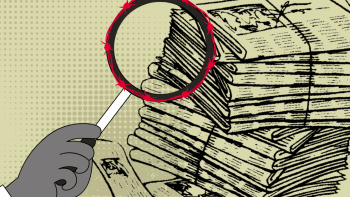
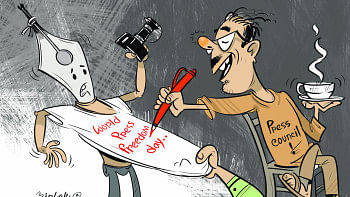


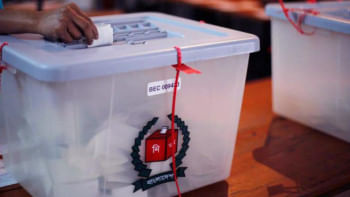


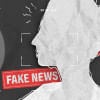


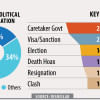


Comments